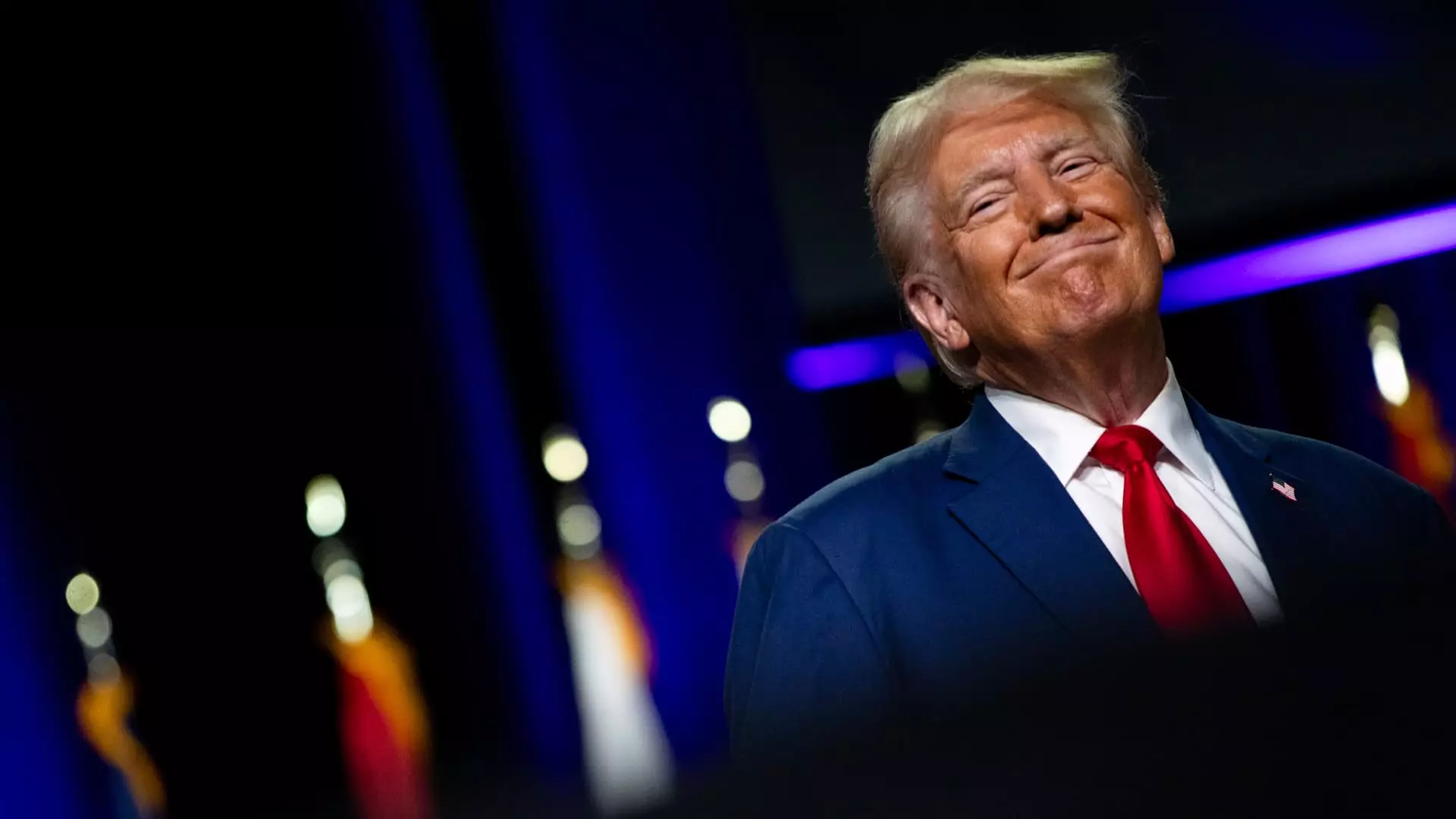As we approach a new presidential administration in the United States, the relationships between major tech executives and political figures have come to the forefront. This transition reveals the inherent contradictions within the tech sector, where innovation meets an increasing scrutiny from the very politicians whom these leaders are seeking to influence. The recent announcement of significant donations to President-elect Donald Trump’s inauguration fund by major tech figures illuminates the complicated dynamics at play. OpenAI’s CEO, Sam Altman, Meta’s Mark Zuckerberg, and Amazon’s Jeff Bezos are all navigating a landscape filled with both partnership opportunities and treacherous pitfalls.
Despite a tumultuous past marked by criticism and accusations, Altman declared his support for Trump’s efforts in artificial intelligence (AI), pledging a personal contribution of $1 million to the inauguration fund. This decision appears contradictory, especially considering Trump’s historically adversarial stance towards technology companies. Trump’s nomination of Gail Slater to lead the antitrust division within the Department of Justice hints at a renewed focus on addressing the market dominance of these tech conglomerates, yet it seems to have done little to deter donations from heavyweights in the industry.
The entangled relationships between these tech executives and Trump underscore a broader shift in corporate America, wherein self-interest guides decisions over ethical or reputational considerations. For instance, Zuckerberg’s recent private dinner with Trump at Mar-a-Lago underscores a newfound willingness to engage with the former president, despite a history of conflict. Just weeks after that meeting, Meta confirmed its own donation of $1 million, opening the door for speculation about whether Zuckerberg seeks to play friendly with the incoming administration in hopes of favorable treatment.
On the other hand, Bezos has his own legacy of contentious encounters with Trump, who has publicly criticized both Bezos and Amazon multiple times in the past. Trump’s claim that Bezos has used The Washington Post to further personal agenda raises questions not only about Bezos’s public persona but also about the strategic motivations behind his $1 million donation to Trump’s inauguration. Now, comments from Bezos suggest a readiness to engage positively with the administration, indicating an interest in a less stringent regulatory environment for tech companies.
This warming of relations with Trump sharply contrasts with the former president’s previous critiques of Big Tech. Trump’s stance on antitrust issues has consistently targeted these companies, framing them as monopolistic entities that stifle competition and limit the voices of smaller businesses. Yet, as he prepares for a second term, the air has shifted; tech giants now appear to be scrambling to curry favor with the very administration that once posed a significant threat to their operations.
While many prominent tech leaders are now publicly congratulating Trump and attempting to establish rapport, the implications of this newfound strategy remain to be seen. Will they be able to leverage their influence to promote policies that mitigate the threat of antitrust action against their companies? Or will they find themselves caught in a web of their own creating, further at the mercy of Trump’s whims?
A particularly noteworthy aspect of this unfolding narrative is the ongoing fracture between Altman and Musk, who once aligned their visions at OpenAI. Their split, accompanied by Musk’s recent legal action against OpenAI concerning its conversion to a for-profit entity, casts a shadow over Altman’s ambitions—particularly now that Musk is gravitating closer to Trump’s administration. With Musk spending substantial resources to support Trump’s campaign, the potential for him to wield influence over tech policy raises red flags.
The specter of Musk leading initiatives about government efficiency creates an atmosphere of uncertainty, especially for those in the AI space. Musk’s established interests and investments could lead to regulatory frameworks that favor his tech ventures, posing ethical concerns as well as competitive threats for firms like OpenAI.
The political enthusiasm among tech giants hints at a new chapter, where past animosities may be set aside in exchange for favorable treatment and regulatory environments. As these leaders increasingly seek to align their interests with political figures like Trump, the potential for a transformational shift in the regulatory landscape looms large.
However, this alignment comes with risks, as the inherent volatility of politics may not yield the stability expected by these executives. The future interactions between tech leaders and this administration could reshape the trajectory of both industry standards and regulatory frameworks in profound ways. Ultimately, the journey ahead will warrant careful observation, with the potential to redefine the relationships between technology and governance in unprecedented ways.

